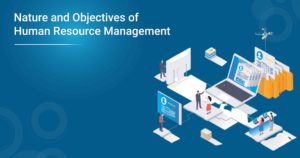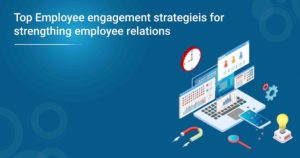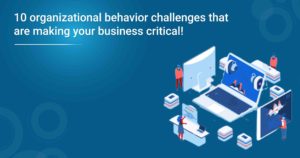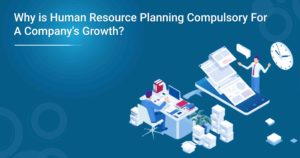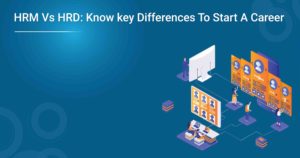Strategic direction in Human Resource Management (HRM) is a framework for how HR should be approached within an organisation. It consists of the HR department’s principles and strategies to ensure that the organisation meets its goals and objectives. This includes setting targets, developing policies, recruiting and retaining talent, and training employees.
In this article, we will further explore the concept of strategic direction in HRM and discuss how it can help organisations achieve their business objectives while creating a positive work environment. We will also look at some best practices for implementing strategic direction in HRM and how to develop an effective strategy.
What is Strategic Direction in HRM?
Strategic direction in HRM is the process of setting and achieving long-term goals for the human resources function within an organisation. It includes developing a vision for the HR function and strategies and plans to achieve that vision.
The strategic direction of HRM should be aligned with the organisation’s overall business strategy. To do this, HR professionals must first understand the business goals and objectives of the company and then develop HR strategies that support those goals.
Some common objectives of strategic HRM include attracting and retaining top talent, improving employee engagement and performance, reducing turnover, and minimising labour costs. Businesses can improve their overall competitiveness and bottom line by achieving these objectives.
How Strategic Direction Works in HRM?
Strategic direction in Human Resources Management (HRM) is aligning an organisation’s workforce and resources to achieve strategic objectives. It involves developing a plan that outlines how to use the organisation’s human capital activity and investments, such as hiring, training, performance management, compensation programs, etc., to support the achievement of business goals best.
The primary goal of HRM strategy is to create a focused workforce that can realise company strategies by creating value for stakeholders. To do this effectively requires understanding both short-term and long-term organisational needs and having clear objectives that are well communicated throughout the organisation.
At each stage in formulating an HRM strategy, there should be a focus on understanding why it matters strategically; what will be different moving forward; what risks need managing or mitigating; who is accountable for delivery against it.
These considerations should help shape an integrated people plan with clear priorities across recruitment & selection; development & learning opportunities; reward packages which incentivise desired behaviour change; employee engagement initiatives designed to promote commitment from all levels within the organisation.
Organisations must also consider external factors when crafting their HRM strategy, including technological changes, economic trends or industry regulations that could impact employment practices or workforce availability.
Significance of HRM in the Strategic Direction of An Organisation
HRM is managing people in companies. It is a strategic function that helps organisations achieve their goals by matching the organisation’s resources with the needs of the employees. HRM also helps to identify, attract and retain talent within the organisation.
The role of HRM in organisational strategy has been evolving. In the past, HR was seen as a support function that helped to implement the organisational strategy. However, in recent years, HR has been increasingly recognised as a strategic partner that can contribute to developing and implementing organisational strategy.
There are several reasons for this change in perception:
- The competitive environment in which organisations operate has become increasingly complex and uncertain. This has made organisations think more strategically about their human resources to gain a competitive advantage.
- The nature of work has altered dramatically in recent years, with an increased focus on knowledge and skills. This has made it essential for organisations to have access to high-quality human resources to remain competitive.
- Research has shown that organisations with effective HRM practices tend to outperform those without them.
Thus, it is clear that HRM plays a vital role in ensuring that an organisation’s strategy is successful. By attracting, developing and retaining talent, HR can help create a workforce aligned with the organisation’s strategic objectives.
Top Reasons Why HRM Is Crucial For Strategic Direction
The strategic direction of an organisation is the overall direction it intends to take to achieve its desired future state. It includes the organisation’s mission, vision, values, and goals. HRM plays a crucial role in supporting the achievement of the strategic direction of an organisation through its various functions, such as talent acquisition, employee development, and compensation.
HRM supports the achievement of the organisation’s mission and vision
Human Resource Management (HRM) is important to a successful organisation’s strategic direction. It can support and drive the achievement of mission and vision goals while promoting employee engagement, job satisfaction, productivity, and organisational growth. HRM is key to creating a cohesive corporate culture that values diversity and innovation.
Effective HRM ultimately supports an organisation’s success by helping ensure its mission and vision are achieved through efficient management practices that maximise resources available to staff members who work towards accomplishing those objectives. By understanding the needs of employees, HRM can assist leaders in developing strategies for recruiting talent – both internally and externally- and building relationships with key stakeholders such as suppliers, customers, partners and shareholders. Furthermore, it helps organisations evaluate their performance metrics to identify areas for improvement or correct issues before they become major problems.
HRM helps to align the workforce with the organisational goals
HRM helps to align the workforce with organisational goals by focusing on human capital and creating a conducive work environment where employees are motivated to achieve more. Through this alignment, organisations can maximise their resources’ potential, ensure efficiency and increase productivity. HRM also provides valuable insights into employee engagement and job satisfaction, ensuring that all parties trust each other and contribute further towards achieving organisational goals.
Furthermore, it also allows for proper compensation plans based on performance, thereby allowing organisations to retain top talent and attract new ones who bring different skill sets along with them. In conclusion, HRM is a key component in setting up an effective strategy for success within any organisation since it optimises both human and financial resources alike, leading to improved results over time.
HRM ensures that the right people are hired for the right jobs
Human Resource Management (HRM) is essential in helping businesses and organisations achieve their strategic direction. With effective recruitment processes, HRM can ensure that employees have the necessary skills to handle tasks related to their positions. By ensuring that the right people are hired for the right jobs, HRM can help a business or organisation to reach its goals as efficiently and effectively as possible.
Employees need to be aligned with organisational values to understand how they fit into the overall strategy of the business or organisation. Additionally, through proper training and development programs, HRM encourages continuous improvement within an organisation which helps them stay competitive in their respective markets. Ultimately, by providing a strong foundation of qualified personnel and creating an environment where personnel continually learn and grow through professional development opportunities, HRM is integral for any successful strategic direction a business or organisation takes.
HRM provides a framework for employee development and career progression
Human Resource Management (HRM) is essential to any organisation’s strategic direction. It provides:
- A framework for employee development and career progression.
- Enabling the organisation to have a clear understanding of what its objectives are in terms of staff engagement.
- Motivation and productivity.
Through HRM, organisations can develop their employees by providing them with training opportunities, mentoring programs and other support initiatives that help them grow both personally and professionally. This enables the organisation to achieve long-term success by creating an environment where employees feel valued and engaged.
Through HRM, organisations can identify talent gaps within their workforce, which allows them to understand better how they can adjust or change their strategy accordingly to remain competitive in a changing market landscape. Ultimately, HRM offers numerous benefits when creating effective strategies that ensure organisational success.
HRM develops and implements policies and procedures that support the strategic direction of the organisation
Human Resource Management (HRM) plays a crucial role in supporting the strategic direction of an organisation. HRM develops and implements policies and procedures that ensure organisational goals are aligned with corporate objectives. Through effective personnel management, HRM ensures compliance with industry standards and legal requirements, as well as employee-related issues such as compensation packages, health benefits, performance reviews, recruitment & retention practices and staff training & development.
Additionally, HRM helps to build a positive work culture based on open communication between management and employees, which encourages collaboration towards common objectives. Ultimately this streamlines operation by improving morale within the workplace while also strengthening the overall working environment for stakeholders across all levels of the organisation.
By providing these essential services, HRM is integral to any successful business strategy – helping organisations achieve their goals effectively while remaining competitive in their respective industries.
Also Read: Objectives & Nature of Human Resource Management
HRM designs and administers compensation programs that attract, motivate, and retain employees
Human Resource Management (HRM) is critical in developing and executing effective organisational strategies. By designing and administering compensation programs that attract, motivate, and retain employees, HRM helps ensure the organisation can draw upon the abilities of its most valuable assets – its people. The compensation packages create incentives that reward desired behaviours, increasing employee loyalty and creating a sense of ownership and commitment to organisational success within them.
HRM designs policies that support development initiatives; promote fair pay practices; maintain labour relations; create flexible work options; and enable healthy, safe working environments. These efforts help foster high levels of job satisfaction among workers while ensuring they are equipped with the skills necessary to achieve corporate objectives. Thus, it’s clear how essential strategic direction through HRM can be for any successful enterprise looking to maximise its human capital investments.
HRM conducts regular performance reviews to identify areas of improvement for individual employees and teams
HRM is a key component in providing direction and guidance for an organisation’s strategic objectives. Through regular performance reviews, HRM can identify areas where employees and teams need to improve to reach their goals and contribute effectively towards the company’s overall success.
Performance reviews also provide valuable insights into employee behaviour, morale, strengths, weaknesses, potential areas for development and training needs, which can be used strategically when making decisions about talent acquisition, job design or succession planning.
Additionally, these performance evaluations help create an environment of accountability that gives feedback on how well individuals are meeting expectations, thus reinforcing positive behaviours while addressing any issues hindering team or individual progress.
HRM identifies the training and development needs of employees and provides relevant programs accordingly
Human Resource Management (HRM) is an essential factor in strategic direction. It identifies employees’ training and development needs, enabling organisations to remain at the forefront of their industry. Through HRM, companies can assess each employee’s current capabilities and identify gaps in knowledge or skills needed for job roles. As such, HRM provides programs tailored towards individual development plans that enable employees to reach their full potential while staying up-to-date with any required skill sets.
It also enables employers to become more competitive by recognising a need for change within the company – leading them down a path of continual improvement internally and externally. In essence, HRM is essential for steering organisational objectives as it helps align efforts between people and business goals so that everyone is working towards success together.
HRM communicates regularly with employees about organisational changes, initiatives, and progress towards goals
Effective HRM communicates regularly with employees about organisational changes, initiatives, and progress towards goals. This communication enables organisations to keep their workforce up-to-date on the progress of current projects, providing a sense of transparency and motivation that can be important to remain competitive in the market.
Additionally, having regular conversations between the organisation’s leadership and staff ensures that any obstacles or issues are addressed before they become major problems. Regular dialogue also allows managers to identify opportunities for improvement while keeping morale high by recognising successes as they occur.
Also Read: What is Strategic Human Resource Management? Definition and Examples
Future of HRM in Strategic Direction
The future of HRM in strategic direction will be increasingly important for businesses to get right. As the world becomes more complex, organisations are recognising the value of having a strong and effective HR team that can help drive their business success.
Companies must have an effective strategy for managing their human resources to succeed in a highly competitive market. This involves:
- Identifying skills gaps within the organisation and developing training programs to address them
- Understanding employee motivation
- Ensuring fair wages and benefits
- Creating policies around diversity and inclusion
- Using data-driven decision-making when it comes to hiring practices Assessing performance on an individual level, and providing feedback as well as incentives where appropriate
- Implementing flexible working arrangements, including work-from-home options, flexi-time etc.
- Monitoring employee engagement levels through surveys or other means
- Utilising technology such as AI or machine learning algorithms to improve recruitment processes.
All these strategies should be tailored according to each company’s specific needs. An increasing number of organisations are looking at how they can use HRM strategically by aligning it with their overall business goals.
For example, some companies are exploring ways of integrating new technologies into their HR functions to better manage large volumes of people’s data quickly whilst also staying compliant with legal regulations such as GDPR. Others may use analytics tools such as predictive or sentiment analysis to gain insights about potential workforce trends, which could then inform decisions about future recruitment activities or employee training programmes.
Finally, employers need to consider how best they can engage with employees to feel valued professionally and personally within the workplace setting. This might include initiatives like career development plans which allow individuals to map out what skills they need to develop to progress within an organisation over time while also offering job satisfaction along the way.
Overall, there is no doubt that human resources management is becoming ever more significant when it comes to establishing organisational objectives – something many businesses cannot afford to ignore if they want to remain successful long-term going forward into the 2020s beyond!
Conclusion
In conclusion, strategic direction in HRM is a critical component of any organisation’s success. It provides guidance and focuses to the entire HR management team when it comes to making decisions that will positively impact recruitment, training, and development practices. By aligning corporate objectives with those of its employees, an organisation can ensure that everyone is working towards the same goal. Furthermore, by utilising the right strategies for cost-savings and efficiency improvements, companies can maximise their resources while still providing excellent services to their staff members.
Our Post Graduate Certificate in Human Resource Management provides a comprehensive overview of strategic HRM. This program offers an in-depth understanding of the role of HRM within an organisation, covering topics like recruitment and selection, performance management and training and development. It also focuses on developing a strategic vision for any given company’s HR function and how to effectively implement strategies to achieve organisational goals. Participants will gain insight into current industry trends and acquire essential knowledge about key legal frameworks governing employment relationships.
More Information:
Breaking Down The Scope Of Human Resource Management
Key Objectives of Human Resource Management









